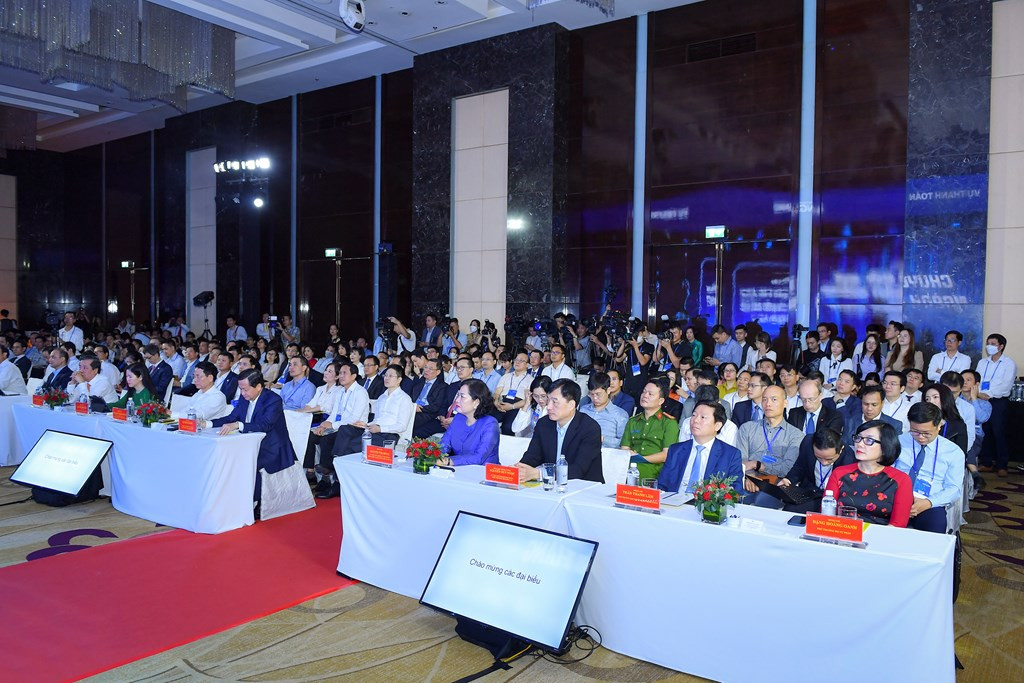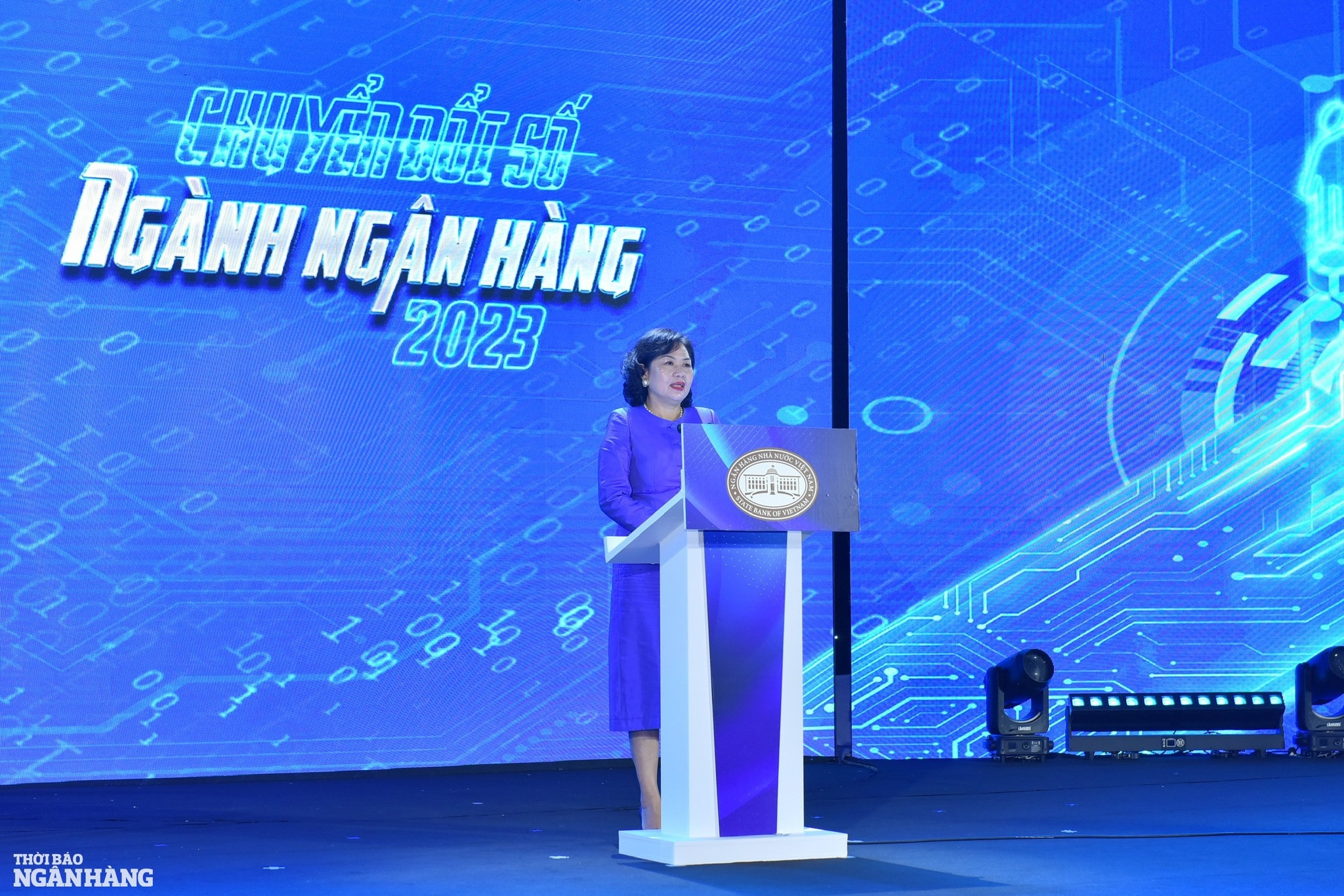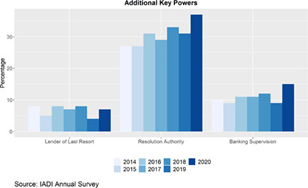
This is the second consecutive year this event has been organized as part of the programs for Banking Digital Transformation Day (on May 11th annually).

According to Ms. Nguyen Thi Hong, the Governor of the SBV, the theme of banking digital transformation this year was selected to affirm the determination of the banking system to effectively implement tasks in the Project No. 06 of the Prime Minister.
Up to now, the SBV has connected with the national population database to cleanse the credit information of 25 million customers, serving other business activities.
Credit institutions have widely applied advanced digital technologies such as big data, data analysis, artificial intelligence/machine learning, etc., to optimize, simplify business processes, providing highly personalized products and services that are tailored to the needs and journeys of customers.
Besides, the banking industry has also implemented several solutions such as allowing customers to open payment accounts based on population data verification; enabling customer identification and verification using chip-embedded citizen identification cards or the VNeID application; optimizing the loan process through credit scoring solutions and multifaceted verification of information using population data, etc.
These results have been evidenced by notable information such as: Many banks have over 90% of customer transactions conducted through digital channels; many credit institutions have achieved good operational efficiency through active digital transformation, reducing the cost-to-income ratio (CIR) to the threshold of 30%, approaching the levels that many regional and international banks are striving for in their digital transformation efforts; approximately 74.63% of adults have bank accounts; 3.71 million mobile money accounts have been opened, with over 70% of them opened in rural and remote areas, etc. In addition, some indicators have met and exceeded the targets set in the Digital Transformation Plan for the banking industry, such as the proportion of the adult population using electronic payment services, the proportion of the SBV public services eligible for upgrading to level 4, etc.

Speaking at the event, Deputy Prime Minister Le Minh Khai highly appreciated the message "Applying population data in banking activities - the driving force for digital transformation." of the SBV this year.
He was also “really impressed” about the achievements that the banking sector has had in digital transformation. “Banks are the lifeblood of the economy. Therefore, a fast digital transformation in the banking industry will boost the overall digital transformation of the country.”, he said.
The evidence for such impressive achievements includes figures such as: The percentage of people with bank accounts reaching 74.63%; the annual growth rate of mobile payment and QR code payments exceeding 100%; many indicators meeting or surpassing the targets set in the industry's digital transformation plan; the availability and usage of many banking products and services designed for rural, remote, and disadvantaged populations.
The Deputy Prime Minister emphasized that digital transformation is an inevitable trend that cannot be reversed and is a new, challenging, and complex issue. Therefore, it is necessary to learn from international achievements and experiences and apply innovation that is suitable for the specific conditions and circumstances of Vietnam.
At the same time, digital transformation must place people and businesses at the center as the subject and the target, serving as the driving force to provide better quality services without additional cumbersome procedures or paperwork for the people and businesses.
The Deputy Prime Minister suggested that the SBV continue to manage the construction and completion of legal documents that are in line with practicality, including regulations on non-cash payments and regulations on controlled testing mechanisms for financial technology activities in the banking sector.
Digital transformation must be implemented comprehensively to ensure efficiency and avoid wasting resources. Therefore, SBV needs to continue investing and developing shared infrastructure for the industry, with the core being payment infrastructure and credit information infrastructure, which must keep pace with and meet the development needs of satellite systems such as financial institutions and payment intermediaries.
According to the Deputy Prime Minister, the trend of globalization and digital transformation will also be accompanied by risks related to high-tech crimes and increasing monetary security threats with sophisticated methods and developments. Special attention should be paid to ensuring security and safety in banking operations, a reasonable balance should be set between investing in product and service development and investing in information technology system security and safety, as well as balancing customer experience and convenience with data security and customer protection in digital transactions.
"The SBV needs to closely coordinate with the Ministry of Public Security and the Ministry of Information and Communications to ensure safety and security, promptly prevent targeted attacks on the banking system," said the Deputy Prime Minister while emphasizing the importance of raising awareness and knowledge of the people and businesses through effective communication, enabling them to use digital banking services conveniently, safely, and to protect themselves from risks of exploitation, fraud, and information theft.



























